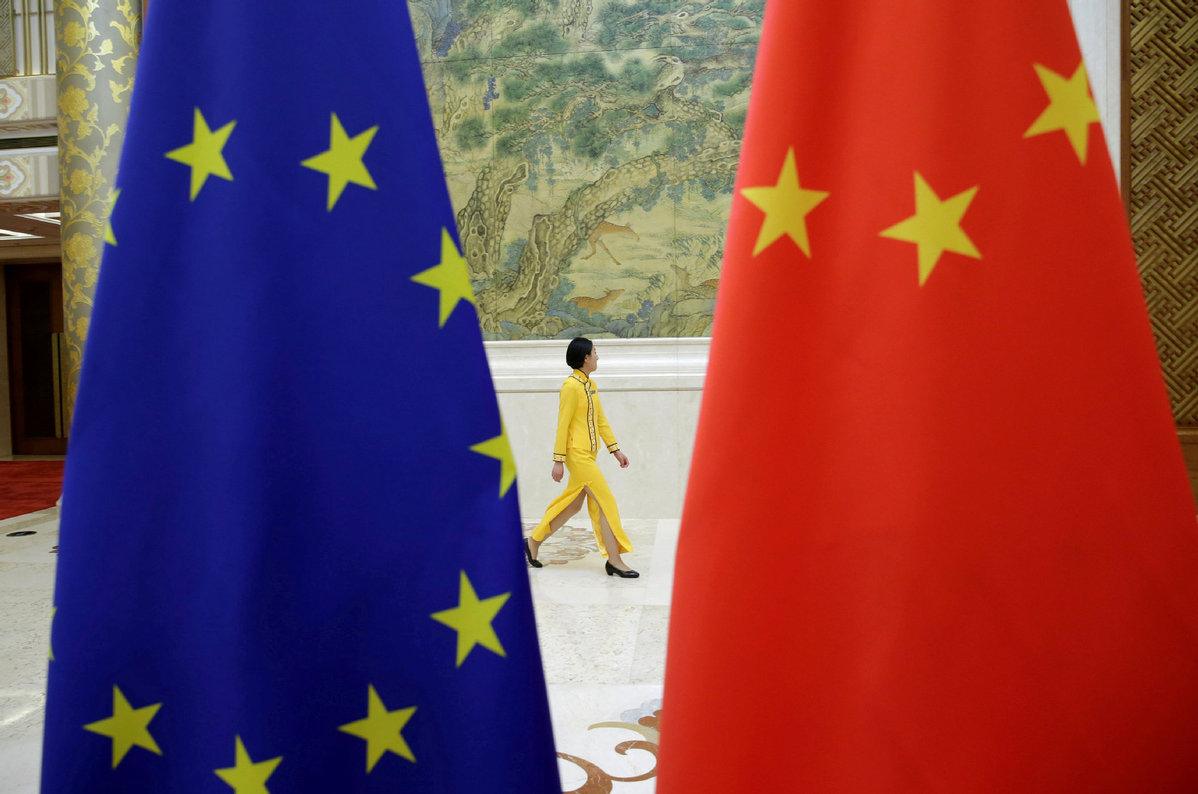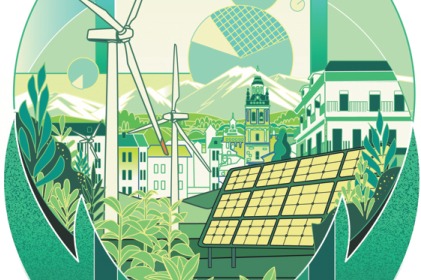EU's stance on China geopolitical, not moral


Editor's Note: The China-Europe relationship hit a bumpy road in 2021, as members of the European Parliament voted to freeze the ratification of the China-EU Comprehensive Agreement on Investment. Some have been vocal in criticizing China's internal affairs such as its Xinjiang policy and interfering in the Taiwan question. Where are China-EU relations heading? And what position should the EU take on the Lithuania-China spat? Global Times (GT) reporters Chen Qingqing and Bai Yunyi interviewed Clare Daly (Daly), an Irish politician and a member of the European Parliament, on these issues.
GT: In 2021, many MEPs in the European Parliament took moves to freeze an EU-China bilateral investment treaty and criticized China over the "human rights" issues. Do you think there is a shaped hostile sentiment in the European Parliament toward China and why? Where does such sentiment come from?
Daly: I think the hostility is in some ways orchestrated. I don't think that many of the members of the European Parliament would necessarily even realize that.
The reasons for the opposition, I see it's twofold. On one hand, there has been a concerted campaign led by many US think tanks which operate in Europe and by US billionaire foundations, by NATO and so on, who are often given a floor in the European Parliament to criticize China.
Also, the US perceives China as a threat to its economic interests and to its dominance on the world stage. I think it's a little bit like the case of Nord Stream 2, which has fallen victim, as the EU has been put under pressure because the US wants to cause a breach with Russia.
These foundations keep pumping out information about Chinese human rights abuses and so on, and many MEPs probably believe that's why the issue was center stage, but I actually don't believe that.
I don't think they care about human rights at all. They certainly don't care about them in Europe, so I don't know why they would care about them in China.
GT: Given your stance on China and your socialist-leaning position, do you encounter a lot of pressure or even attacks in the European Parliament? We are wondering, how many MEPs have a similar stance on China?
Daly: I suppose the way I would look at it is my attitude to China is no different than my attitude to any other country. I suppose my starting point is against the double standards of the EU in its dealings with third countries and the abandonment of international law.
For example, on the increase in Chinese military expenditure and Chinese militarism, I'm opposed to that because I see myself as being pro-peace. But I'm not going to be silent and point out to them that the amount of money that China is spending on militarism is a tiny fraction of what the US spends and a tiny fraction of even what Western Europe spends.
So what we're talking about here is hypocrisy. And I want consistency and adherence to international law. By me, even arguing for this consistency, it is kind of said I'm an apologist for China.
In any case, it's pretty much there is a growing racism here. This is among the EU that talks about democracy and anti-racism. We were called for literally having a pro-peace and a pro-international law-based practical approach for cooperation and dialogue with our neighbors and our biggest trade. We were called "panda huggers," which was an actual racist slur about Chinese people.
When we complained to the parliament about that, it wasn't being necessary to get an apology for that, which shows how much accepted this anti-Chinese rhetoric has become. It's pretty horrible, to be honest. I think many MEPs are disconnected from that. It seeps into the consciousness, particularly when the media is playing that role as well.
GT: In 2021, several MEPs visited the island of Taiwan. Countries like Lithuania keeps challenging China's bottom line on the Taiwan question. How do you see their motivation? As far as you know, are there any Taiwan-related groups and figures lobbying behind MEPs?
Daly: I suppose there's always been a lobby group for "Taiwan independence" that has always been there. Most countries around the world recognize the one-China principle that Taiwan is a province of China recognized in international law. But why now? Why they suddenly found interest in Taiwan?
So the motivation is either they're incredibly stupid, or this was a move to basically give kind of one in the eye to China to insult China. And the parliament's special committee on foreign interference, which is dealing with foreign interference in the affairs of the EU, goes to meddle in the foreign affairs of another country.
The reason they visited the island was geopolitical, so that's disgraceful. And it's ridiculous and double standards again.
Another example of such irony is that when the people in Catalonia in Spain had a referendum for independence, the EU said that's a matter for Spain. This is for one of their own member states, and yet China on the other side of the road is a big concern for the EU.
GT: So what attitude do you think the EU should adopt in terms of Taiwan-related policy?
Daly: I don't think the EU should have a foreign policy at all. Foreign policy should be decided by national governments, and the relations with China should be on a bilateral basis.
It's up to the Lithuanian people to correct their government or support them in their stance with China. But I do know that many Lithuanians in businesses and individuals are not happy with what the government has done, because it's had an impact now on their trade dealings and their relations with China.
GT: As we know, the EU has appeared to see China as a competitor, rival or even threat. Do you think this is true, and if so, why?
Daly: I don't agree that should be the way but I do agree that is the way. I think it's a product of two things. Firstly, it's a product of the US hostility to China and that being fed into the EU. I think also it's European aspirations toward being a superpower itself.
It makes no sense at all because we're at a time when, as a global civilization, we need to cooperate on climate problems and other problems, which would only be sorted by mutual cooperation and mutual support as well as diplomacy.
The basis for a conflict with China isn't there. Economically, the economies of the world are bound together like never before.
The idea of a new cold war can't really happen. China is the EU's biggest trading partner. The EU is reliant on China for critical raw materials if it's going to develop its renewable policy, for example, we need to cooperate and deal with each other.
We can have differences with their neighbors and other countries and resolve them through dialogue and cooperation. I don't see China as the threat at all. I see the world only being able to deal with its issues through cooperation with all countries.
GT: Beijing will soon hold the 2022 Olympic and Paralympic Winter Games, but there is still noise, media attention, and government-led so-called diplomatic boycotts of the Games. How do you see these claims and what's your expectation for the Games?
Daly: I think those claims are absolutely ridiculous. There would be members of the European Parliament who would have joined that call. I know there are other members of parliament who are trying to go in defiance of that to try to make their presence there.
I don't think I have the time to go, and I know access is limited because of the pandemic.
I think the issue has been totally instrumentalized, which is part of what is becoming a sort of nearly acceptable racism toward China. And it's being embedded in sections in the media, which traditionally you would not expect that from which is actually quite scary.
I believe human rights should be protected everywhere. But I do think singling out China would be very much being done for geopolitical reasons. I don't see the basis of that at all. I think it's cynical, and opportunistic, and actually, it undermines the ability to deal with any human rights claims. The proof of this is that they turn a blind eye to human rights abuses on their own borders and in their own countries.
A lot of Europeans would be very surprised to know that migrants and desperate people seeking asylum are being denied international rights on your spots, captain camps, freezing on the cold to death on the borders. And then they give us about human rights in China.
I'm sure there probably are human rights concerns in China. And I have no problem in looking and examining those. But I have to start in my own backyard at first and look at the human rights abuses in Europe where I can do something about them.
I think the issue of the Olympics has been seized upon.
GT: In your eyes, what is the chance of the European Parliament unfreezing the China-EU bilateral investment treaty this year? Are you working on anything related to this possibility?
Daly: To be honest, it's not something I'm familiar with. But if they have any sense, they will. China is our dominant trade partner. It makes no sense to freeze it. At the same time, there are forces at work that these situations can escalate, and we have seen a real deterioration in relations. I think practically it will have to be unfrozen.
GT: We noticed that you are very vocal about the Julian Assange case. What does this case tell us? Also, you cited that there is a bipartisan consensus in American media about attacking the freedom of the press. So what's the mainstream public sentiment in Europe toward this issue?
Daly: Europe is nearly worse than the US. While it might be late in the day, we've seen most sections of the US media now come out to condemn the prosecution of Assange. But in the European mainstream media, the consensus hasn't reached there, because the European media demonized Assange who went on about his personality 语法?and all this kind of thing which have nothing got to do with the issue that he was actually doing, which is exposing US war crimes.
GT: Being a socialist, do you face a tough road in the European Parliament as a politician, and do you think Europe needs socialism? Why?
Daly: First and foremost, I am very much against the neoliberal ideology, which predominates in the EU, and throughout most of the global economies, which puts private ownership of wealth ahead of the interests of the population.
When I say I'm a socialist, I just mean I'm against the inequality of society. I want to run for ordinary people's protection of the environment, good standards, and so on. I actually think that's something that people all around the world want. There's a huge disconnect between the citizens of Europe and the European Parliament on so many issues.
They want decent social security, they want decent jobs with decent pay. They want housing which there's a massive crisis on. They don't want their hard-earned money being spent on militarism and conflict. They want cooperation across nations.
In that sense, it's not lonely because the ideas I would have, I think, are shared by the people of Europe, whether they would call them socialist or not.
But the EU pushes a neoliberal agenda that furthers the interests of big business, big farm and not the citizens. It's the European institutions that are divorced from the population, not me.
































